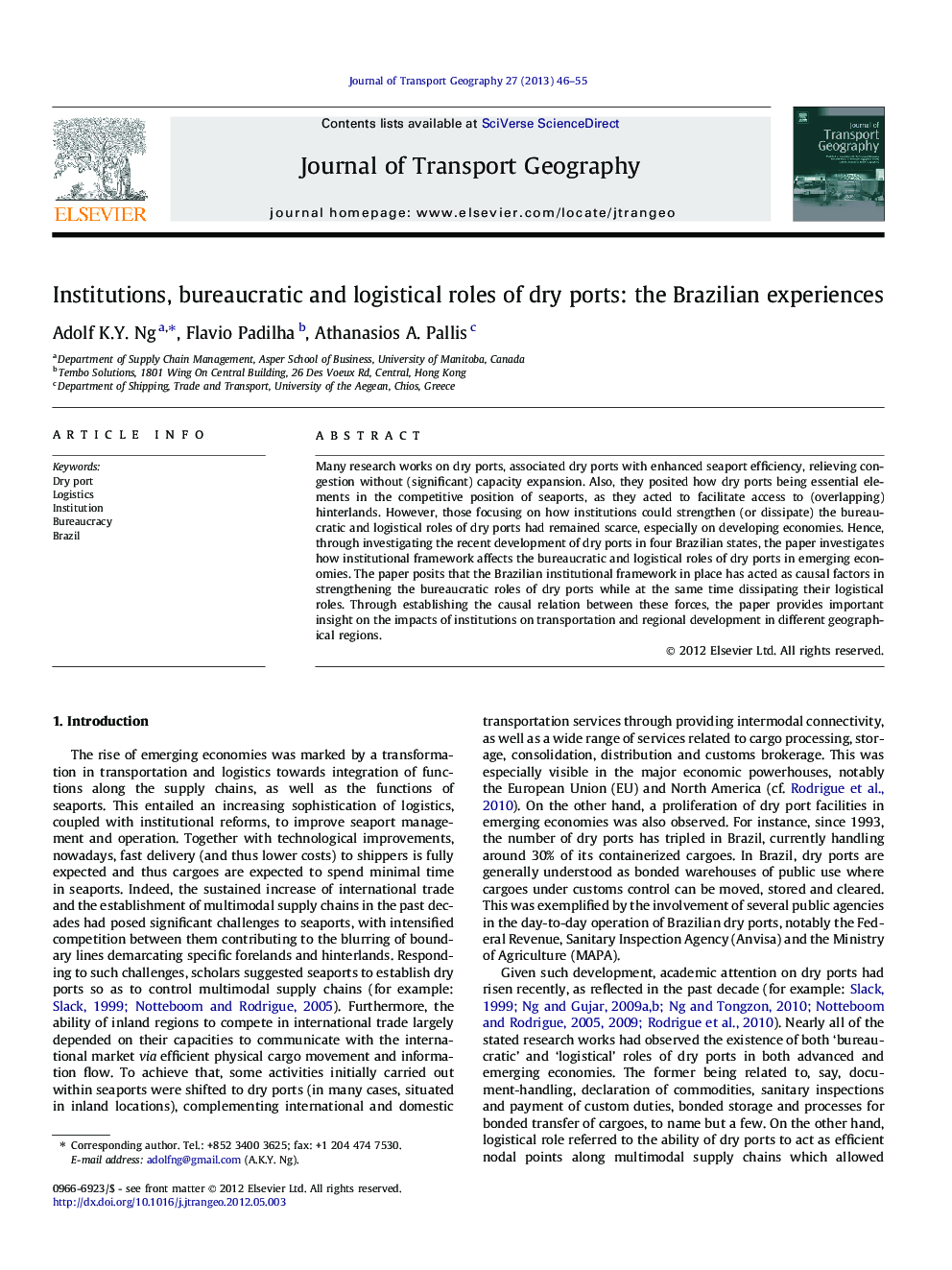| کد مقاله | کد نشریه | سال انتشار | مقاله انگلیسی | نسخه تمام متن |
|---|---|---|---|---|
| 1059317 | 1485440 | 2013 | 10 صفحه PDF | دانلود رایگان |

Many research works on dry ports, associated dry ports with enhanced seaport efficiency, relieving congestion without (significant) capacity expansion. Also, they posited how dry ports being essential elements in the competitive position of seaports, as they acted to facilitate access to (overlapping) hinterlands. However, those focusing on how institutions could strengthen (or dissipate) the bureaucratic and logistical roles of dry ports had remained scarce, especially on developing economies. Hence, through investigating the recent development of dry ports in four Brazilian states, the paper investigates how institutional framework affects the bureaucratic and logistical roles of dry ports in emerging economies. The paper posits that the Brazilian institutional framework in place has acted as causal factors in strengthening the bureaucratic roles of dry ports while at the same time dissipating their logistical roles. Through establishing the causal relation between these forces, the paper provides important insight on the impacts of institutions on transportation and regional development in different geographical regions.
► It investigates how institution affects dry port development in Brazil.
► Institutions strengthen the bureaucratic roles of dry ports.
► Institutions dissipate the logistical roles of dry ports.
► Institutions discourage collaboration between seaports and dry ports.
► It provides insight on the impacts of institutions on transport node development.
Journal: Journal of Transport Geography - Volume 27, February 2013, Pages 46–55